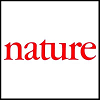The p53-SET Interplays Reveal A New Mode of Acetylation-dependent Regulation
Wang D, etc
Nature,
2016
Although lysine acetylation is now recognized as a general protein modification for both histones and non-histone proteins, the mechanisms of acetylation-mediated actions are not completely understood. Acetylation of the C-terminal domain (CTD) of p53 (also known as TP53) was an early example of non-histone protein acetylation and its precise role remains unclear. Lysine acetylation often creates binding sites for bromodomain-containing 'reader' proteins. Here we use a proteomic screen to identify the oncoprotein SET as a major cellular factor whose binding with p53 is dependent on CTD acetylation status. SET profoundly inhibits p53 transcriptional activity in unstressed cells, but SET-mediated repression is abolished by stress-induced acetylation of p53 CTD. Moreover, loss of the interaction with SET activates p53, resulting in tumour regression in mouse xenograft models. Notably, the acidic domain of SET acts as a 'reader' for the unacetylated CTD of p53 and this mechanism of acetylation-dependent regulation is widespread in nature. For example, acetylation of p53 also modulates its interactions with similar acidic domains found in other p53 regulators including VPRBP (also known as DCAF1), DAXX and PELP1 (refs. 7, 8, 9), and computational analysis of the proteome has identified numerous proteins with the potential to serve as acidic domain readers and lysine-rich ligands. Unlike bromodomain readers, which preferentially bind the acetylated forms of their cognate ligands, the acidic domain readers specifically recognize the unacetylated forms of their ligands. Finally, the acetylation-dependent regulation of p53 was further validated in vivo by using a knock-in mouse model expressing an acetylation-mimicking form of p53. These results reveal that acidic-domain-containing factors act as a class of acetylation-dependent regulators by targeting p53 and, potentially, other proteins.
- Journal
- Nature
- Year
- 2016
- Page
- doi: 10.1038/nature19759
- Institute
- Columbia University
Referenced Products
| Product | Cat No. |
|---|---|
| Ad-Cre-IRES-GFP | 1710 |
| Ad-IRES-GFP | 1761 |
Vector Biolabs
293 Great Valley Parkway
Malvern, PA 19355
Email: info@vectorbiolabs.com
Phone: +1 484-325-5100
Toll-free (US Only): 877-BIO-LABS
Fax: +1 215-525-1112
Privacy Policy

